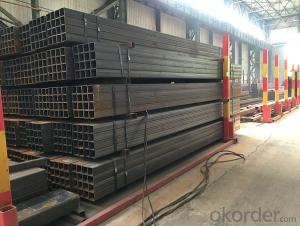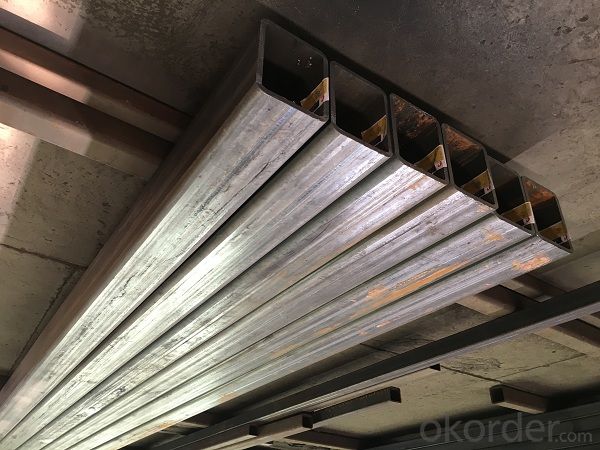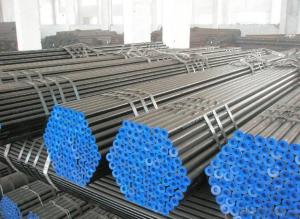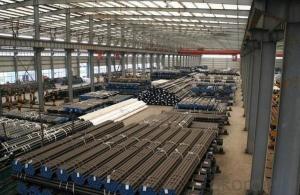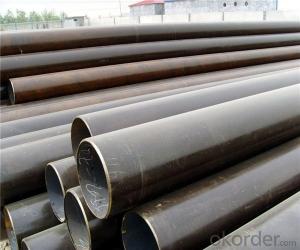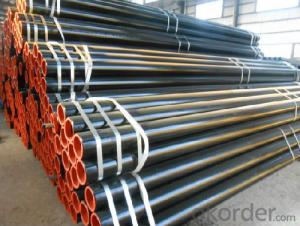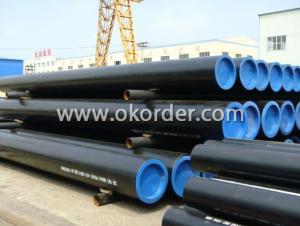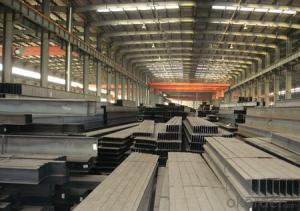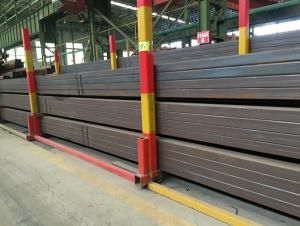Selling building many types of square tube
- Loading Port:
- Tianjin
- Payment Terms:
- TT OR LC
- Min Order Qty:
- 10 m.t.
- Supply Capability:
- 15000 m.t./month
OKorder Service Pledge
OKorder Financial Service
You Might Also Like
Specification
1、 Selling building many types of square tube
Square tube, square tube is a kind of call and rectangular tube, is equal and not equal to the length of steel pipe. Is the strip through the process of processing roll system. In general is the strip through the demolition of the package, flat, curly, welded to form a circular tube, and then rolled into a square tube and then cut into a square tube and then cut into the required length.
2、 Selling building many types of square tube
• High manufacturing accuracy
• High strength
• Small inertia resistance
• Strong heat dissipation ability
3、 Selling building many types of square tube
Standard | GB, DIN, ASTM |
Grade | 10#-45#, 16Mn 10#, 20#, 45#, 16Mn |
Thickness | 1.5 - 25 mm |
Section Shape | Square and rectangular |
Outer Diameter | 20*20 mm-------400*400mm 20*30mm*300*500mm |
Place of Origin | Tianjin, China (Mainland) |
Length | 3-12M |
Outer Diameter | 20*20 mm-------400*400mm 20*30mm*300*500mm |
Grade | 235B 345B |
Standard | ASME, ASTM |
1) Material:(ASTM A 106/A53 GRB.API5LGRB,GB,235B,345B
2) Specification range:OD: 20*30mm----300*500mm 20*20 mm---400*400mm ,WT: 1.5 - 25 mm ,length:3-12m or according to the requirement of clients.
3) Excutive standards:GB,ASME API5L.ASTM A 106/A53,Despite of the above
4) Surface:black lacquered,varnish coating or galvanized.
5) Ends:Beveled or square cut ,painted.
6) Packing:bundles wrapped with strong steel strip,seaworthy packing.
4、Packaging & Delivery
Packaging Details: | seaworthy package,bundles wrapped with strong steel strip |
Delivery Detail: | 15-30days after received 30%TT |
5、 Selling building many types of square tube
①How is the quality of your products?
Our products are manufactured strictly according to national and internaional standard, and we take a test
on every pipe before delivered out. If you want see our quality certifications and all kinds of testing report, please just ask us for it.
Guaranteed: If products’ quality don’t accord to discription as we give or the promise before you place order, we promise 100% refund.
②How about price?
Yes, we are factory and be able to give you lowest price below market one, and we have a policy that “ for saving time and absolutely honest business attitude, we quote as lowest as possible for any customer, and discount can be given according to quantity”,if you like bargain and factory price is not low enough as you think, just don’t waste your time.Please trust the quotation we would give you, it is professional one.
③Why should you chose us?
Chose happens because of quality, then price, We can give you both.Additionally, we can also offer professional products inquiry, products knowledge train(for agents), smooth goods delivery, exellent customer solution proposals.Our service formula: good quality+good price+good service=customer’s trust
SGS test is available, customer inspection before shipping is welcome, third party inspection is no problem.
6、 Selling building many types of square tube
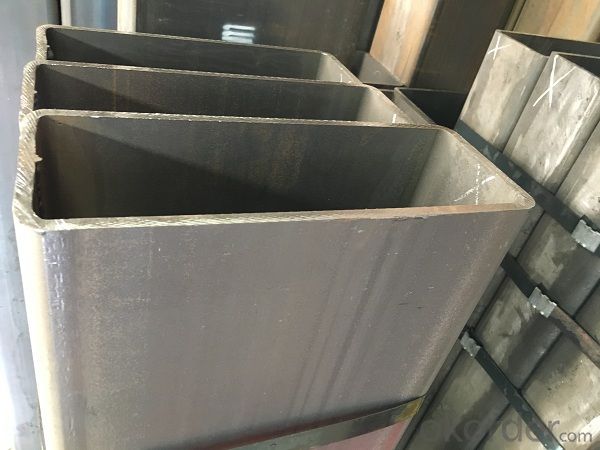
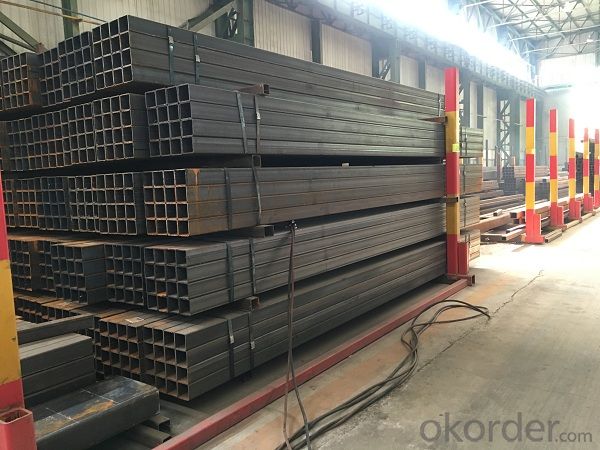
- Q: Can steel pipes be used for underground gas distribution?
- Yes, steel pipes can be used for underground gas distribution. Steel pipes are commonly used for gas distribution as they are strong, durable, and can withstand high pressure. Additionally, steel pipes have excellent resistance to corrosion, which is crucial for underground installations. However, it is important to ensure proper coating and insulation to prevent any potential damage or leakage.
- Q: How do you select the right size of steel pipe for a project?
- To select the right size of steel pipe for a project, one must consider factors such as the intended purpose, the flow rate or pressure requirements, the material being transported, and any applicable building codes or regulations. Consulting engineering specifications, pipe size charts, and professional advice can help in determining the appropriate size that will meet the project's requirements and ensure optimal performance and safety.
- Q: How are steel pipes used in the manufacturing of pressure vessels?
- Steel pipes are commonly used in the manufacturing of pressure vessels due to their high strength and ability to withstand high pressure. These pipes are utilized as the primary material for constructing the shell of the pressure vessel, providing a robust and reliable structure. Additionally, steel pipes offer excellent resistance to corrosion, making them suitable for various industries and applications where pressure vessels are required, such as oil and gas, chemical processing, and power generation.
- Q: Can steel pipes be used for underground sprinkler systems?
- Yes, steel pipes can be used for underground sprinkler systems. However, it is important to note that steel pipes are not as commonly used as other materials like PVC or polyethylene due to their susceptibility to corrosion. If steel pipes are chosen for this application, they should be coated or lined to protect them from underground moisture and ensure their longevity.
- Q: How are steel pipes protected from corrosion in corrosive environments?
- Steel pipes are protected from corrosion in corrosive environments through various methods such as applying protective coatings, using cathodic protection systems, and implementing corrosion inhibitors.
- Q: What are the different types of steel pipe fittings for gas pipelines?
- There are several types of steel pipe fittings commonly used for gas pipelines, including elbows, tees, reducers, flanges, and couplings. Elbows are used to change the direction of the pipeline, while tees are used to create branch connections. Reducers are used to connect pipes of different sizes, and flanges are used for connecting pipes with valves or other equipment. Couplings are used to join two pipes together.
- Q: How long do steel pipes last?
- Steel pipes can last for several decades, typically around 50 to 100 years, depending on various factors such as the quality of the steel, the environment they are exposed to, and proper maintenance and care.
- Q: How are steel pipes used in the shipbuilding industry?
- Steel pipes are commonly used in the shipbuilding industry for various applications such as the construction of the ship's hull, piping systems for fuel, water, and other fluids, as well as for the ventilation and drainage systems on board. These pipes provide strength, durability, and corrosion resistance, making them ideal for withstanding the harsh marine environment.
- Q: Can steel pipes be bent or shaped to meet specific requirements?
- Yes, steel pipes can be bent or shaped to meet specific requirements. The process of bending or shaping steel pipes is known as pipe bending. It involves using specialized machinery and techniques to manipulate the pipe into the desired shape. Various methods can be employed, including hot bending, cold bending, and induction bending. The choice of method depends on factors such as the size and thickness of the pipe, the required bend radius, and the specific application. Pipe bending is commonly used in industries such as construction, oil and gas, automotive, and manufacturing to create custom pipe configurations that fit specific requirements and allow for efficient installation and functionality.
- Q: What's the difference between No. 20 steel pipe and 27SiMn Steel Pipe?
- Cold plastic deformation and for bending, rolling, bending and hammer arch processing, arc welding and contact welding welding performance is good, when the thickness is small, prone to strict requirement of shape crack or complex shape parts. The cold or normalizing condition of cutting is better than that of annealing. It is generally used to make the material with little force and high toughness.
Send your message to us
Selling building many types of square tube
- Loading Port:
- Tianjin
- Payment Terms:
- TT OR LC
- Min Order Qty:
- 10 m.t.
- Supply Capability:
- 15000 m.t./month
OKorder Service Pledge
OKorder Financial Service
Similar products
Hot products
Hot Searches
Related keywords
